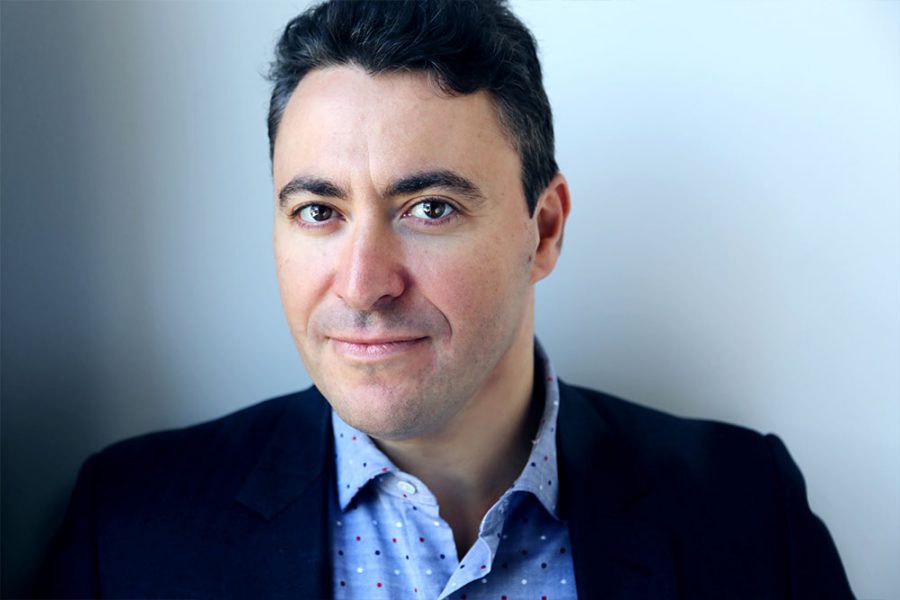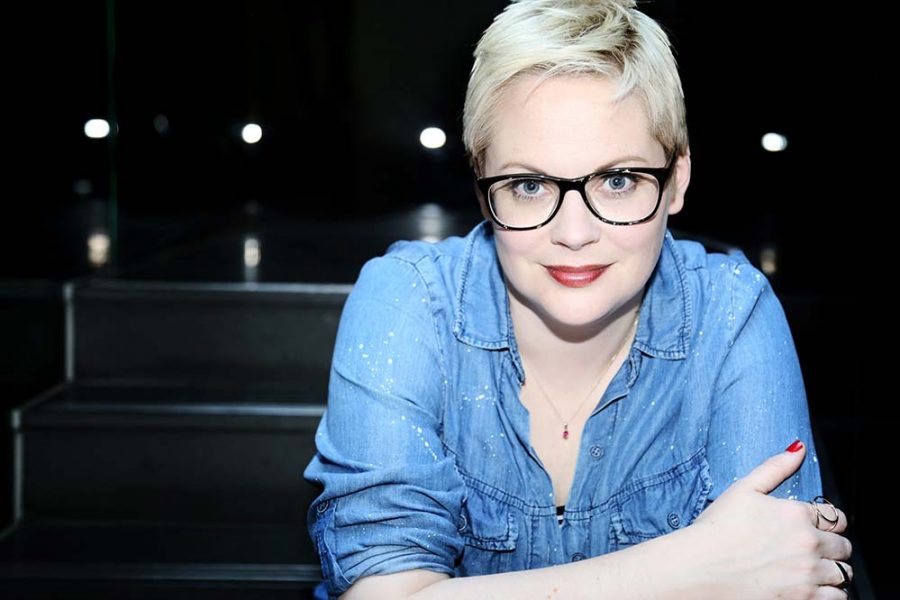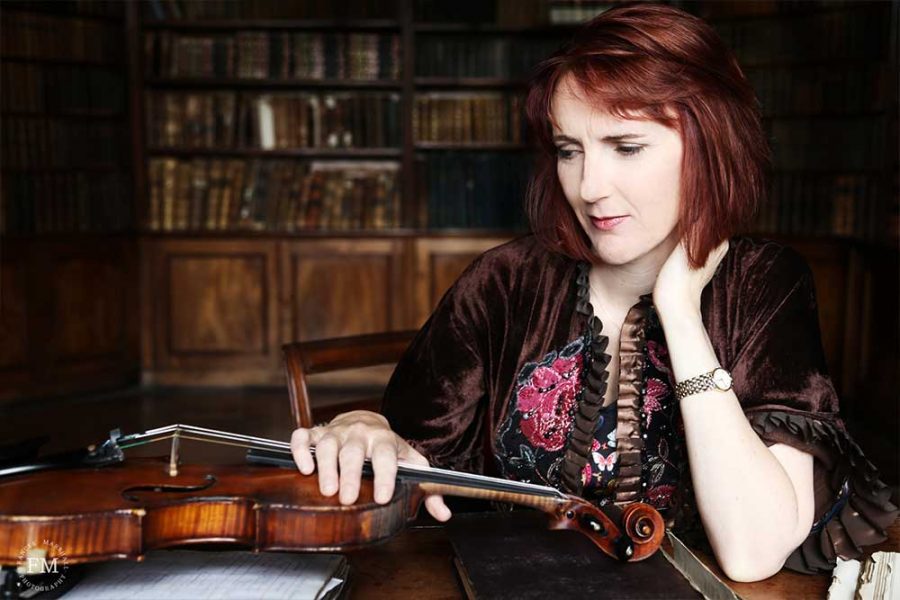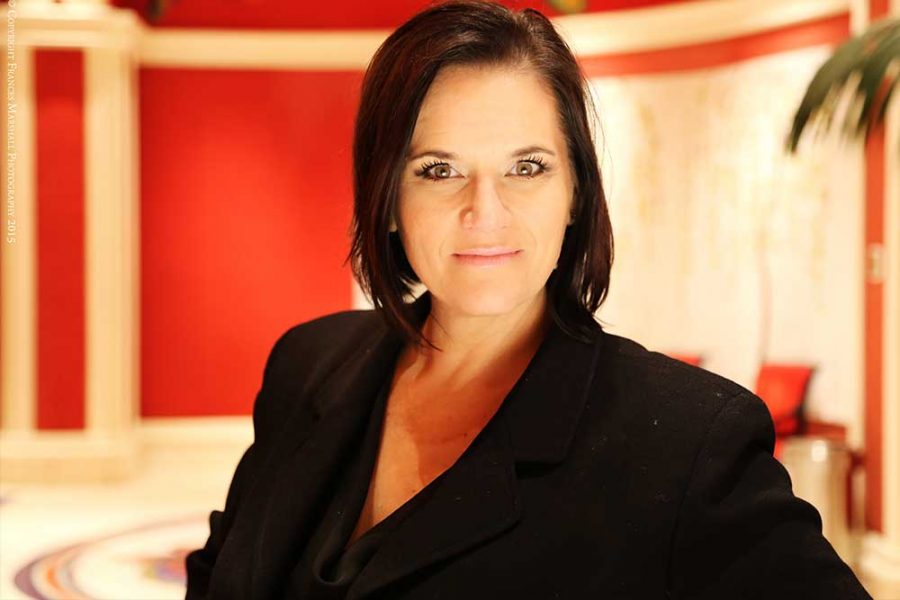Finding My Voice: Patrick Rafter

March 2019
Interview and photos by
Frances Marshall
Share this article
Irish born violinist Patrick Rafter is quickly evolving from being labelled a ‘Rising Star’, to an internationally recognised leading artist in his field.
It’s immediately apparent that Rafter’s tenacity and emotive approach to music has contributed to his world-class achievements at such a young age.
A protegé of the legendary Maxim Vengerov, Rafter met with Final Note Magazine to talk about his fascinating childhood, his unrelenting drive and the recovery process from a near life-changing injury.
Today my playing is first and foremost emotional...I’ve always been able to deeply connect to the music."

What was different about your childhood that made you believe you could achieve what you have today?
I was a really sensitive and soft child. I connected to music in a way that made me feel different. My body would resonate and I’d be in tears, it was weird and strange. I could listen to music for hours on my own as a child – I loved opera, but that’s probably because Dad was a singer.
Today my playing is first and foremost emotional, yes I’ve gone through periods where I wasn’t technically strong, but I’ve always been able to deeply connect to the music.
Your parents are both musicians, how did that shape your early experiences with music?
My Mum was born in East London, her family ran pubs and two of their customers were the Kray twins. She came to Ireland and trained as a pianist in the Royal Irish Academy of Music and met my Dad, who was from Kilkenny. He became a physics lecturer in Dublin, he wanted to be a singer and was trying to make it work, but his father died and he inherited a working farm which meant he had to move home.
They got married and had four kids, and in his early 30’s he decided to take up a Bachelor Degree, singing with Mary Brennan in Dublin. So anything he was studying, I was studying, even though I was very young, we were both learning and it was lovely because we were both excited by music. We’d sit together for hours listening to recordings of the world’s greatest opera singers and I definitely absorbed a lot during that time.
When did your formal training start?
I met Eyal Kless, who was an amazing player, and he became my teacher. I started with him when I was 12 and it was a real privilege because he came from a brilliant lineage. He introduced me to an international tradition, which allowed me to understand the artform very early on. He ignited my search for a world-class standard.
He then suggested that I attend a summer academy in Italy, I was very young so Dad came with me. The tenor, Carlo Gaifa, was also there and Dad decided to go for a lesson with him. Carlo then sent my dad to meet with Giuseppe Di Stefano and pianist Maurizio Carnelli in Teatro alla Scala, Milan. It went really well and Dad ended up going to work with them for a while. So I was knocking around backstage in La Scala when Dad was there. To me it became a really normal place. I attended every performance I could, generally wearing a Kilkenny Hurling jersey – I hadn’t a clue and had no real awareness of the level of artistry that was surrounding me.
What made you realise that this wasn’t a normal experience for a teenage violin student?
I was working on duets with my dad and we did a session with Massimiliano Bullo, who at the time was the house conductor at Teatro alla Scala. I remember coming out of that lesson dazed, I was just struck with a sense of ‘wow’. That was the first time I’d worked at a world-class level. The insights, architectural understanding and his solutions for a problem were instant. Myself and Dad sat in silence for an hour afterwards.

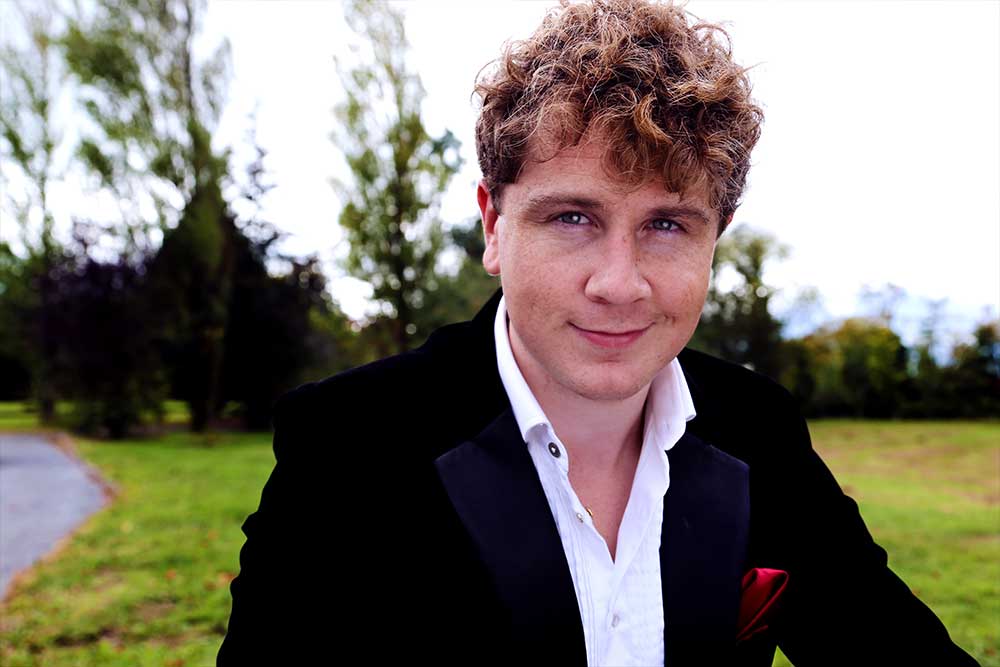


By the time I was 16 I had won everything I had aimed for in Ireland. I was a competition demon, there's no denying it. I then had a life-changing moment."

What’s really interesting is that you and your father seemed to be experiencing the exact same level of education at the same time, which is a rare thing. It must have felt very equalising.
That’s exactly what it was, it was weird and wonderful. I’m very close with both my parents. Even to this day, the opinion I want to hear most after a concert is that of my parents and my girlfriend. They really know who I am and what I’m capable of.
You’re a competition junkie, is there a difference in how you prepare for a concert or contest?
By the time I was 16 I had won everything I had aimed for in Ireland. I was a competition demon, there’s no denying it. I then had a life-changing moment.
I had applied for a music bursary of €10,000 with the Feis Ceoil in Dublin. On the morning of the competition everything went to hell. My string snapped, I had to walk twenty minutes to get a new one in complete panic because a string needs 4-5 hours to play in. When I went to fit it, it was the wrong size, so I had to go back. I lost my phone and my wallet in the hysteria of it all, so I couldn’t get a bus or taxi to the venue. I remember actually crying because I was so angry and scared.
Not only that, the other competitors were incredible, the competition was fierce. I was a complete mess before I went out on stage, but as I walked out in front of the audience I got a moment of clarity where I thought ‘the only person I have to beat right now is myself’. The only person I had to do justice to was the composer and the music. I played completely for the audience and nothing else. That moment changed everything for me. That was 10 years ago and it’s been my favourite performance. Every competition since then has been approached in the same way. I’m never going out to beat anyone but myself.
How did you afford your first violin?
I bought my first violin when I was 10. It was €10,500 and I raised the money busking for a summer in Kilkenny and then I did a one day week busking when I went back to school. My parents instilled in me that this was not something I was entitled to and if I wanted this career it was only going to happen if I worked for it.
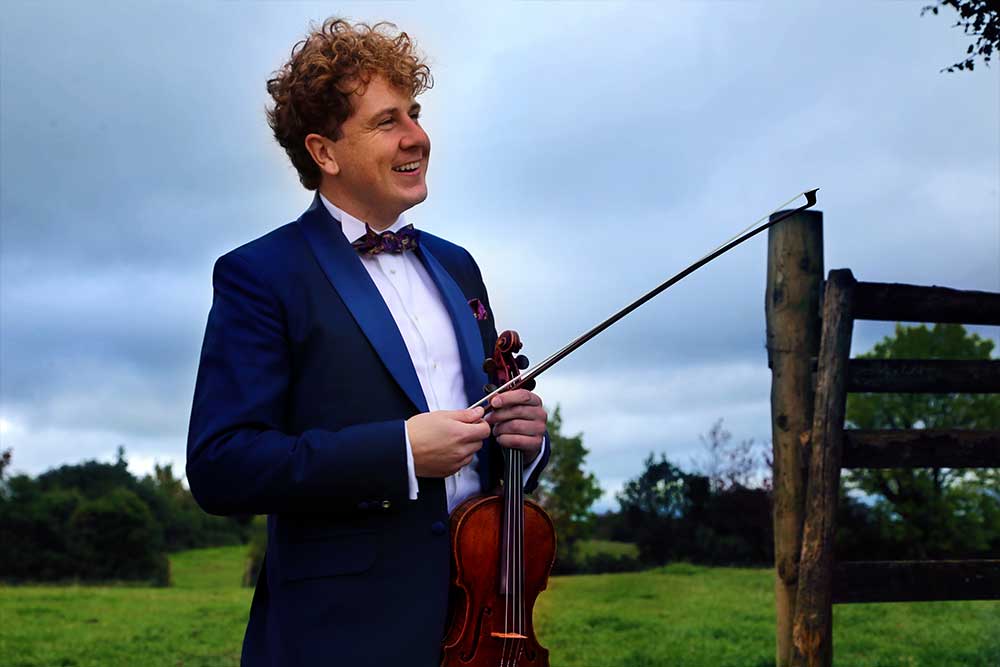

You’ve received over €100,000 in various grants from Ireland, does that give you a tremendous sense of support?
Right from the word go my parents paid for my lessons as a child, which in my mind means that I was born privileged – music was a priority. I then received a bursary from The Kilkenny Music Festival, which allowed me to go to a fantastic teacher. I was given brilliant opportunities. I felt an enormous support from my local community, which was brilliant. The local press would support me too, which was huge in my eyes.
I then got a bursary to study in the Royal Irish Academy of Music. The Arts Council bursaries have also supported me on many occasions and the local county council bursaries helped me to study in London. Clandeboye with Barry Douglas was another very supportive place for me. Music Network have also been incredibly generous to me and then the National Concert Hall awarded me Young Musician of the Year. I’ve always been extremely supported by my country and I’m forever grateful.
What’s the secret to getting the money in?
The most important thing to know is that not every bursary is meant for you and you can’t take it personally. I haven’t got everything I’ve applied for, but I’ve continuously kept applying for the same grants over and over. What these grants have done is allowed me to have complete financial freedom and focus on the artist I need to be. I had that freedom when I started working with Maxim Vengerov and that was an incredible gift. He’s a man you want to be focused around and if I had of been scared about money or where my rent was coming from, there’s no way I could have progressed the way I needed to.
You have to apply and be tenacious, many artists give on about not being supported when they haven’t applied for the grants they’re complaining about or submitted weak applications. I had a petulant moment years ago, where I was getting stroppy about the fact that I hadn’t been offered any concerts and why wasn’t I being given them. Until I slapped myself and realised that I didn’t ask for them. If you don’t put yourself out there and ask, you will get absolutely nothing in return.
You’re very driven and entrepreneurial, do you see that as integral to being a successful musician?
Yes absolutely! If I ask and they say no, I’m in the same position I was before I started, so you’ve got nothing to lose. I’m a firm believer in the goodness of people and yes, you will meet the difficult people, but they can’t stop you. I honestly ask people for what I need and if they can help me I will do whatever I can to repay the favour. I have had the greatest teachers in the world from Fionnuala Hunt to Maxim Vengerov, and I have had so many wonderful opportunities that were given to me from nothing other than kindness.

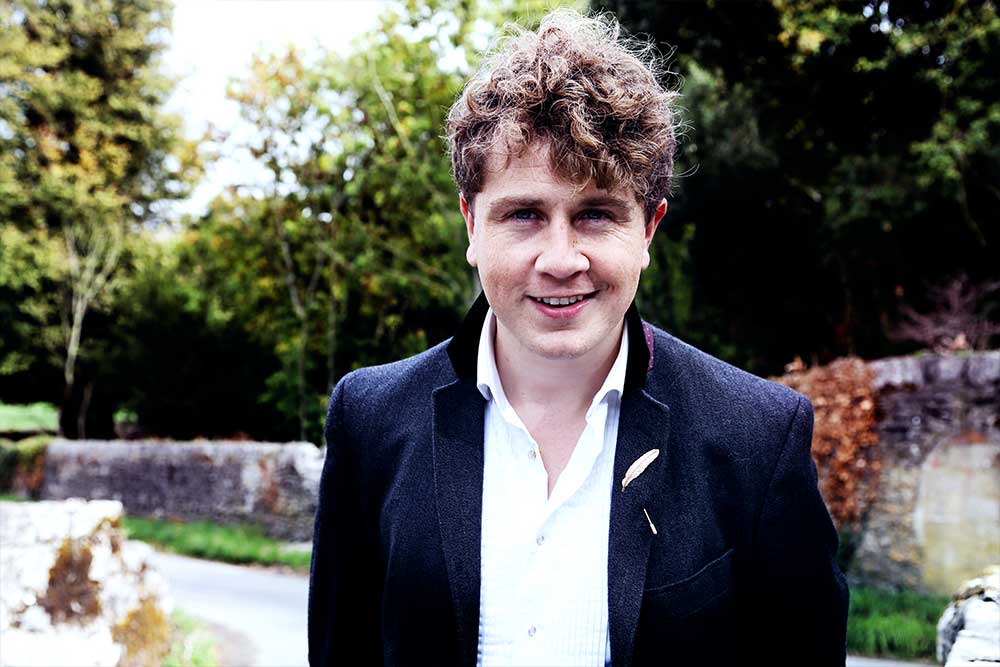

The recovery was hard, it was two months of slow playing. Psychologically it was about getting over the fear, I was scared that I would hurt myself..."

How do you maintain this unstoppable energy on a daily basis?
It’s a deliberate thing. I always try and find as much peace as I can despite the life I lead. Every single morning I’ll go for a walk, even if I’m getting a flight or if it’s a rehearsal or performance. I’ll get out and clear my head with a walk. I’ll find that peace if it kills me, on a daily basis. I pray and meditate every day. It’s always my first objective. In the life of a musician there’s huge pressure, you have to find your peace.
What’s your pre performance ritual?
It’s simple. I’m always early so I’m not rushing, I need to be extremely calm. Then I have an internal dialogue about why I do what I do and why I’m on stage. I then deconstruct the ego, it’s not about me. Music is so much greater than you. The people who have come are the priority, nerves are secondary if you can get into that headspace. I’m there to lift the audience, we’ve no idea why someone has walked into the audience, they could be carrying unbelievable burdens that make our issues extremely small. My job is to bring them somewhere else.
You had a big setback last year with an injury, can you tell us about your recovery?
Over the Christmas in 2017 I played in a charity football match. It was a freezing cold day, I fell and realised I’d hurt my left hand. The tendon that I had damaged was in my second finger, which is the most used finger in violin playing. Anytime I contracted between my thumb and my second finger, I would have a shooting pain going up my arm and into my shoulder – it was unbearable.
I had never before pulled out of a concert and I did that January – it killed me. In the weeks that followed I was obsessively checking to see if there was any improvement. Literally, waking up in the middle of the night checking if the pain was gone. It wasn’t going anywhere, there was no improvement after a month.
Violin was my life, I had no idea what I was going to do if I couldn’t play. Being a conductor came to the forefront because I’d done it and really loved it. I actually had got to the point where I was researching conducting programmes, but I had no idea how I was going to earn anything or pay for the training. Towards the end of January I had a realisation, that if I wasn’t meant to be a violinist I had been one for a reason. Whatever path I was about to take now was going to be enhanced by the fact I had the experience of being a player. I made peace with that, it was awful but I had to accept it. The second I did, the anxiety stopped which allowed me to just get practical about giving my recovery the best shot I could.
I found a specialist in Switzerland and I went to her three times a week. I was extremely disciplined and followed everything she said. It was my only priority. I didn’t pick up the violin until mid February. I set myself a goal if I could play for a minute, somewhat comfortably, it was a huge achievement. But to get to that I had to stand in the room for hours repeatedly picking up the violin and putting it down, until I achieved that solid minute of ease while I played. I found myself just staring at the instrument and believing it would get better and that I would get it back. In the first week, I got to two minutes and I was thrilled with myself.
The recovery was hard, it was two months of slow playing. Psychologically it was about getting over the fear, I was scared that I would hurt myself, and I couldn’t play to my full capacity if I was scared and holding back. A concert in March changed everything – I made a decision that if I hurt myself, that’s what’s meant to happen. I was going to have to say goodbye to my career if I couldn’t conquer the fear. You can’t stand in the middle.
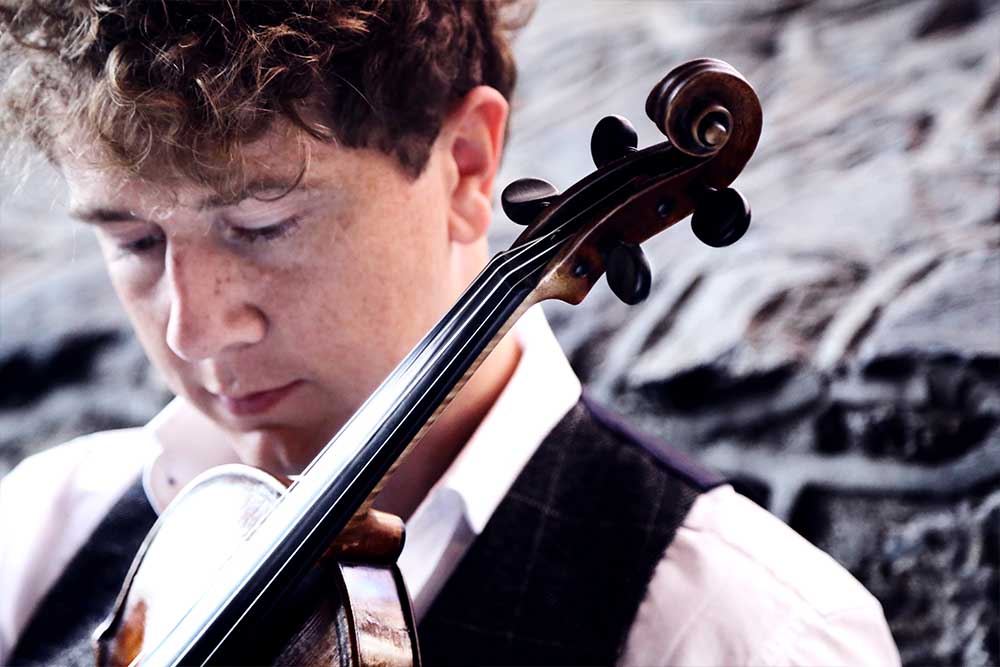

What brought you into Maxim Vengerov’s radar?
He was a visiting professor at the Royal Academy of Music in London, where I was a student. In my third year I played for him in a public masterclass, we instantly sparked off each other, but were able to quickly bounce back. He’s the greatest violinist in the world with a strong personality. I was playing a piece that he’s renowned for, Wieniawski’s Variations Op 15. Nobody in the world comes close to him in playing this piece and I had grown up watching this guy master this work. I just remember him playing it right in front of me, feeling the energy, watching his hands within a couple of feet of him was absolutely breathtaking.
The next time he came, he asked me to play that piece for him in another masterclass and after that he asked me to come and train with him in Switzerland.
What’s the most important thing he’s taught you?
That’s a really hard question, but he was the first person in my life who brought my eyes to a different world that I didn’t know existed, in the world of violin. The way he approaches the instrument is very unique. The world of sound and how you obtain it and most importantly turn it into you and your personal voice. Many people think that a great teacher will just tell you where to put your middle finger on a string and make a great sound, but Maxim gave me a voice as opposed to a sound.
What are you looking forward to in your concert this week with Vengerov and the RTÉ National Symphony Orchestra?
I just can’t wait, it’s a programme of Dvořák and Bach. The Bach Double Violin Concerto is one of the most popular and valuable pieces in the classical music repertoire, along with being one of the most recorded. As a kid I used to watch Yehudi Menuhin and David Oistrakh performing it – it was breathtaking thinking of these two giants with completely different styles coming together so seamlessly.
I can’t believe I have this opportunity to perform it with my mentor Maxim, in my home country, in the National Concert Hall with the RTÉ National Symphony Orchestra – it’s an enormous honour.
Many people think that a great teacher will just tell you where to put your middle finger on a string and make a great sound, but Maxim gave me a voice as opposed to a sound."

Find out more about Patrick Rafter:
patrickrafterviolinist.com
For details on Patrick’s upcoming concert with Maxim Vengerov:
www.nch.ie
All images displayed in this article are subject to copyright.
Share this article


